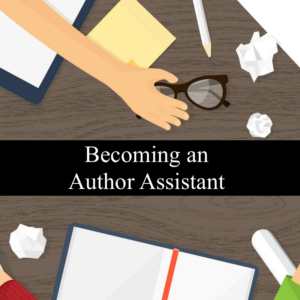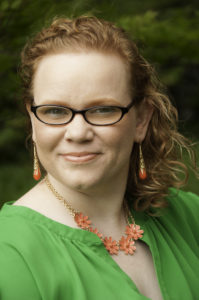 This is part three of a three part series on becoming an author assistant by Adriel Wiggins, virtual assistant and continuity editor.
This is part three of a three part series on becoming an author assistant by Adriel Wiggins, virtual assistant and continuity editor.
In this post, I’m answering questions from Sara Rosett, mystery author. You can also find several questions and their answers in Part Three of Sara’s series Working With an Author Assistant.
What specific things do you do for authors?
I write newsletters, update websites, promote book launches, edit books (various levels), research information for a book being written, compile survey data, build keyword lists, format books, communicate with ARC teams and vendors, and generally act as an advisor for author businesses. If I don’t know how to do something an author wants, I’ll let them know, and then learn how to do it, unless they choose to hire someone else. What I can do is expanding regularly.
What are your strengthens/where do you think your time is best spent?
I’ve noticed that while many author assistants can run a marketing campaign or have graphic design experience, not many love slogging through large amounts of data. Many authors simply shut down if you hand them a spreadsheet and tell them the information they need is in it. I, however, love playing in large data. My favorite projects are the ones that simply overwhelm authors and most author assistants due to their scope.
Do you have any suggested tasks/jobs that help you get to know the author and their books?
Whenever I add a new author, I add myself to their newsletter subscription list and their ARC team. This allows me to keep an eye on what they’re doing, and gets me a copy of each of their books before releasing them. If the author writes in a genre I love (always preferable), then I might binge-read everything they’ve written within the week after they hire me. I am not a super-fangirl that’s memorized every word written by every author I work for. However, I need to be comfortable enough with their work to be able to enthusiastically discuss it and know what order their books are in a series.
How did you become a VA?
When an author in a group I was in asked for Beta Readers, I was quick to sign up because the plot summary was very interesting to me. A couple of weeks later, after I’d fixed several problems with her manuscript, we’d cemented our friendship and our working relationship. When she was ready for her next book, she hired me to be an editor for her. After a couple more of her books had been released, she asked me to become her assistant. She encouraged me and paid for a lot of my training and education when a lot of other authors wouldn’t have. She was super patient with me as I learned how to be an author assistant. Eventually, she gave me the push to open my business to other authors as well. She’s still one of my top clients.
How do you handle working with authors in different time zones?
Although I try to do at least the initial interview with an author via video chat, most communication can happen through email. I have customers in England or Australia who have very different time zones than I do. I might email them before bed, and expect an answer when I wake up. When I first interview with an author, I let them know about my life and my basic schedule, letting them know when the majority of my working hours are. For some authors, text/instant messages may fly back and forth throughout the day, but for most an email with a list of instructions is perfectly suitable. If I’m not ready to work on a project, I mark the email as unread (or email the text message to myself), so that it’ll catch my attention and remind me to do it when I am ready to sit down and work.
What are your best productivity tips?
I am a huge fan of brain.fm, a site that plays music/white noise to help you be more productive. I often put on my headphones and slip into a work trance for an hour or two. To go with that, I’ll turn on Forest on my phone, which is a timer that motivates you to stay off your phone for a set amount of time. When I sync up my brain.fm and my Forest timers, I can get a lot of work done with fewer distractions. Internet blocking apps like Anti Social and Freedom can help you stay offline so that you can get work done; these are especially helpful for authors when writing. But if your work is online, as often is the case with assistants, then it helps me to close out all programs and tabs that aren’t related to the project I’m working on right then. And since Life happens anyway, I do my best to minimize my duties in other areas while working. My crockpot may be cooking dinner on the counter while I work, but I won’t keep turning over chicken frying in the pan while I work. I try my best to clearly delineate time frames as “work” or “household” or “family time” when Life gets crazy. Being an author assistant can certainly be portable; I can do much of my work from my phone just about anywhere. But the biggest secret to getting more done efficiently and properly the first time is to be focused on that one thing, which requires boundaries and delineation.
Got more questions? Check out Part One of Sara’s Working With an Author Assistant series, where I answer many more questions. Or leave your questions in the comments and we’ll answer.
Check out Part One of this series for tips on becoming an assistant and Part Two for info on building an author assistant business. Or, check out Part One of Sara’s Working With an Author Assistant series.
 Hello! I’m Adriel Wiggins, wife, mother of three, fur mom, bibliophile, art geek, and all around student. I’ve been on a quest all of my life to learn as much as I possibly can about everything I possibly can. This has helped me tremendously in what eventually became my life’s purpose: to help other people become the best version of themselves. It is in that line that I became an assistant. You can check out my credentials and experience on my website. Stop by and see what books I’ve been reading!
Hello! I’m Adriel Wiggins, wife, mother of three, fur mom, bibliophile, art geek, and all around student. I’ve been on a quest all of my life to learn as much as I possibly can about everything I possibly can. This has helped me tremendously in what eventually became my life’s purpose: to help other people become the best version of themselves. It is in that line that I became an assistant. You can check out my credentials and experience on my website. Stop by and see what books I’ve been reading!

Recent Comments